Do you live with a noisy parrot?
Do you want to know how to calm her?
Do you need bits of advice to help you live with your parrot?
You are in the right place!
Here you will find interesting and useful information about noisy parrots. You will learn how to calm them and many more interesting tips for parrot owners.
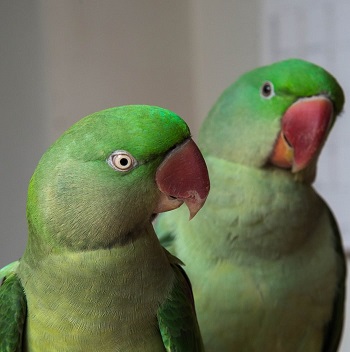

Tips For Living With A Noisy Parrot
1.Stay Quiet
This method may seem completely pointless to you, but it works. When your parrot starts to get loud you start being quiet. Do not jump right in and try to make the bird quiet. She or he must know that their voting does not reach you, in some way you have to show authority. Your bird will roar for a while longer, but when it sees that you are not coming it will stop. Then, when it stops making noise, go to it, reward it, and praise it for being good. After a while, the bird will become silent because it will connect rewards and silence. Be persistent and do not give up. Sure, sometimes it is extremely hard to calm them down, but this option is far better than going yelling at a bird to calm it down.
2.Train Your Bird
If you train your noisy parrot from the beginning, you can teach it to be quiet and calm. It will take you a long time if it is restless, but the effort will pay off. Spend a lot of time with it and do not leave it alone much. They will love being in your company when they get used to you. In that way, it will master the repetition of words faster. Train your parrot every day, constantly, and be persistent. It will be difficult for you at first, but as time goes on you will notice changes in her or his behavior. One of the good ways you can train them is to talk to them. Say certain words in a light tone or read a text to them. Also, if the bird starts to get very loud, start talking quietly to your housemates. The bird will then calm down because it will want to hear what is happening, and what you are talking about. Birds are social beings, so give your bird a lot of attention. Maybe it just misses hanging out with you. Play with it in your free time, teach a parrot to talk, and give it time so that it is not boring.
3.Buy Toys
If your parrot is very loud most of the time, it may be boring. You need to prepare toys, train them, play music to make them more comfortable. There are various toys just for parrots that they will adore. Arrange their cage so they do not get bored while they are in it. Make sure it is big enough so they can fly freely. You can also buy them a cuttlefish bone that will help them sharpen their beak. Many birds love music. They will be happy if you turn on the radio, turn on the TV or sing. There are a lot of parrot toys in pet stores that will surely entertain your parrot, and silence it for a while. Make sure your parrot has something to nibble on, and that the toy is made of good material. Also, it’s important to purchase a quality and large metal bird cage. It is very important to check the things you are buying as it is possible for your parrot to swallow part of the toy when it chews and pecks it. Look for strong toys, sturdy, because parrots have a strong beak and could tear a toy quickly.
4.Give Them Friend
If you own one noisy parrot, consider getting it a friend. The parrot may feel lonely and need company. Especially if you bought a parrot from a store where it was with more birds. When choosing a friend for a parrot, think about what type of bird you are buying, if it’s male or female, and whether that species is sociable. Your bird may become calmer if you get it a friend, but it can also become unfriendly. Be careful when choosing. A parrot can very easily accept a new member and then be calmer. It may be more playful and interested in a new parrot, but the opposite can also happen. A parrot can react very violently to another bird, which can result in even louder noise. If this happens, it means that you have to gradually get used to one parrot on another. For starters, keep them separate until they get used to living together.


5.Music Helps
As already mentioned, many birds love music, so will your parrot. It will surely calm down if you turn on the radio because it will be enchanted by the sounds and songs. Also, your parrot will love it if you dedicate time to it and sing. Make sure the music is not too loud and keep track of what kind of music your parrot prefers. When a parrot is upset, it knows how to make a lot of noise. Therefore, music will help the most in that case. Start singing a song, it doesn’t even have to make sense, it is important that it is light, calm, and quiet. The bird will soon calm down, and may even start whistling along with you. Another good way is to play the music the bird is used to. For example, if your bird arrived from the forest in which they have lived, let out the sounds of nature so the bird will feel safer and adapt faster. Of course, avoid sounds that include the voting of other animals, predators that could scare your parrot. If you turn on the TV, be careful which channels you play. Be careful not to play shows with vulgar words because your parrot could easily learn those words.
6.Let Them Stretch Their Wings
There is one very logical reason why your parrot is loud – she wants to fly. If the parrot is constantly in the cage and there is not much space in it, let the judo spread its wings a little. Before releasing the parrot from the cage you need to close all the windows and doors. It would be best if you let your bird play and fly in one room. This way you will keep an eye on it, you can easily remove dangerous objects, and it will be easier to put them back in the cage than to hunt them all over the house. Your bird will have fun flying around the house, or simply exploring a new space, so it will surely forget about loud croaking. It will become a quiet bird for a moment. Let it fly for a while and relax its wings. If you do not know how to put it back in the cage, it would be best to lure the bird with a treat, or just wait for it to come back into it by itself when it will be hungry or thirsty.
7.Make Sure Cage Is Big Enough
One of the reasons birds are loud is the cage. This is most often because it is too small and uncomfortable for them. Especially if the birds were free and now they are put in a cage most days. If your bird is calm when you release it from the cage it means there is a problem in it. Gradually teach it to him, or buy a bigger cage, maybe a large aviary. It is very important to equip the cage with all the necessary elements. The bird must have enough space, lots of toys, food, water, and provide it with a quiet part of the house. It would be good if the cage was big enough for the bird to jump without getting hurt. Be careful what material the cage is made of because the parrot will surely want to check the strength with its beak. You can easily lure the bird into the cage with delicious treats or toys. When buying a cage, make sure that it fits the size of your bird, and provide it with free space for all toys. Check the bottom of the cage, and finish it if there is no real bottom. Parrots have sensitive legs, which can be easily injured if they jump on an uneven surface.
To Sum Up
Here you could read about tips which will help you if you live with a noisy parrot. One of the best ways you can calm your parrot is to stay quiet until it calms down. Also, there are many differences between male and female cockatiel, and you can see that in their behavior. So, if you are looking for a quiet bird, try with a female cockatiel. Do not jump immediately up and rush to her to silence her. Stay calm and reward her when she stops being noisy. Also, play music to her when she is restless, the music will calm her down. Maybe there is some reason why your parrot is noisy, check what is bothering it and try to fix the problem. One of the most common problems is a too small cage. Birds love to fly, and this is prevented in their cages. For this reason, you often let the parrot fly out of the cage, and buy a large cockatiel cage with all its equipment.


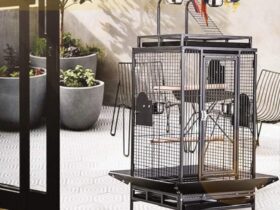















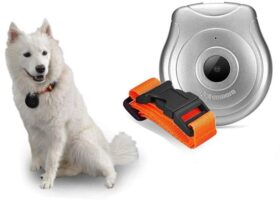

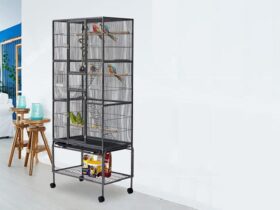
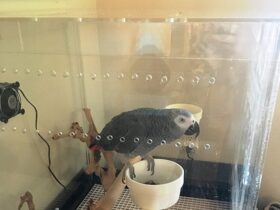


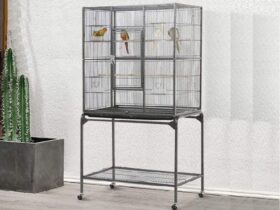
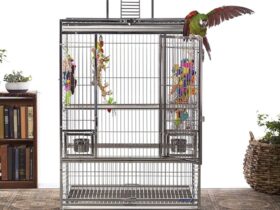
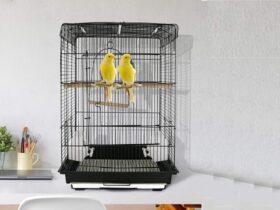
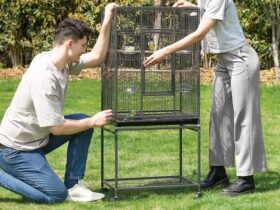
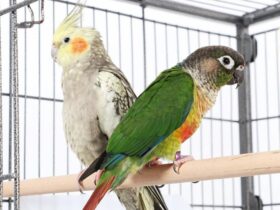
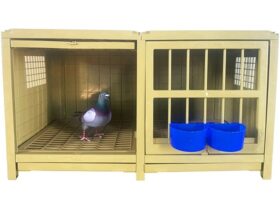
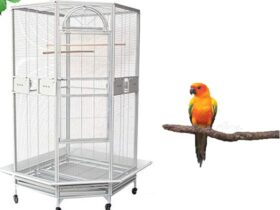
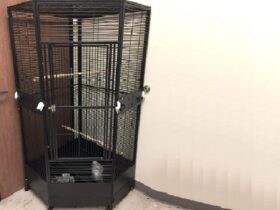
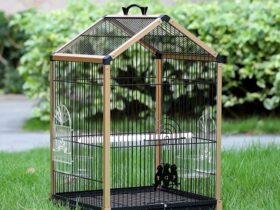
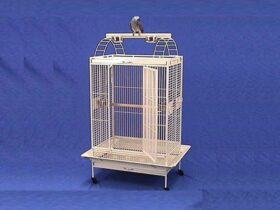

Leave a Reply